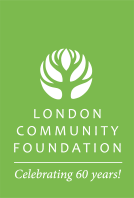Many of our lives, and the lives of our friends and family, are touched by illness. Both physical and mental illnesses can have a significant impact on our lives, and are also not borne equally across our community. Mental illness in particular is strongly related to poverty. At times it is poverty that makes people at greater risk of mental health challenges, at times it is the advent of a mental health challenge that puts people at risk of poverty. Often, it is both.
There is no doubt that our mental health care system has had its challenges. From a history of aggressively institutionalizing people, we swung the pendulum the other way to moving people back into communities with limited support. Dealing with illness is difficult enough for individuals and their families, but facing a flawed system can have catastrophic effects, as evidenced by the number of individuals with mental health challenges encountering police and criminal justice systems.
However, this is the story of the past in our community. We are learning, we are evolving our systems, and we are, day-by-day, doing better. I reflect on the growth and enhancement of community-based mental health services in London, as evidenced most recently by the amalgamation of WOTCH, SEARCH, and CMHA into CMHA Middlesex. New programs and resources for mental health services are being invested where they are needed most, into the places where we live, work, play, and sometimes become ill. These programs show real promise to de-link poverty and mental illness, to show that the relationship is not inevitable.
I think of particular of the work of Impact Junk Solutions. This program of CMHA Middlesex provides real employment opportunities to gain skills, an income, and a sense of pride to those touched by mental health challenges. At the same time, as a social enterprise, the revenue generated by their services provides CMHA the opportunity to deliver even more programs. This breaks down barriers and changes peoples’ stories.
Yes, we still have a long way to go in responding perfectly to issues of mental health in our community, but London is already taking many steps in the right direction.
The volume of Mental HealthH calls that the London Police responded to increased by 39% from 1,743 in 2012 to 2,423 in 2013 (London Police Service).
In 2013, 68.8% of respondents in the Middlesex-London Health Unit rated their mental health status as “excellent” or “very good.” This represented a decrease of 6.3% from 75.1 per cent in 2003. (Statistics Canada)
The average time spent on Mental Health calls decreased by 24% from 6.68 hours in 2012 to 5.1 hours in 2013.(London Police Service)
Abe Oudshoorn is a Registered Nurse and an assistant professor at the Arthur Labatt Family School of Nursing at Western University.


